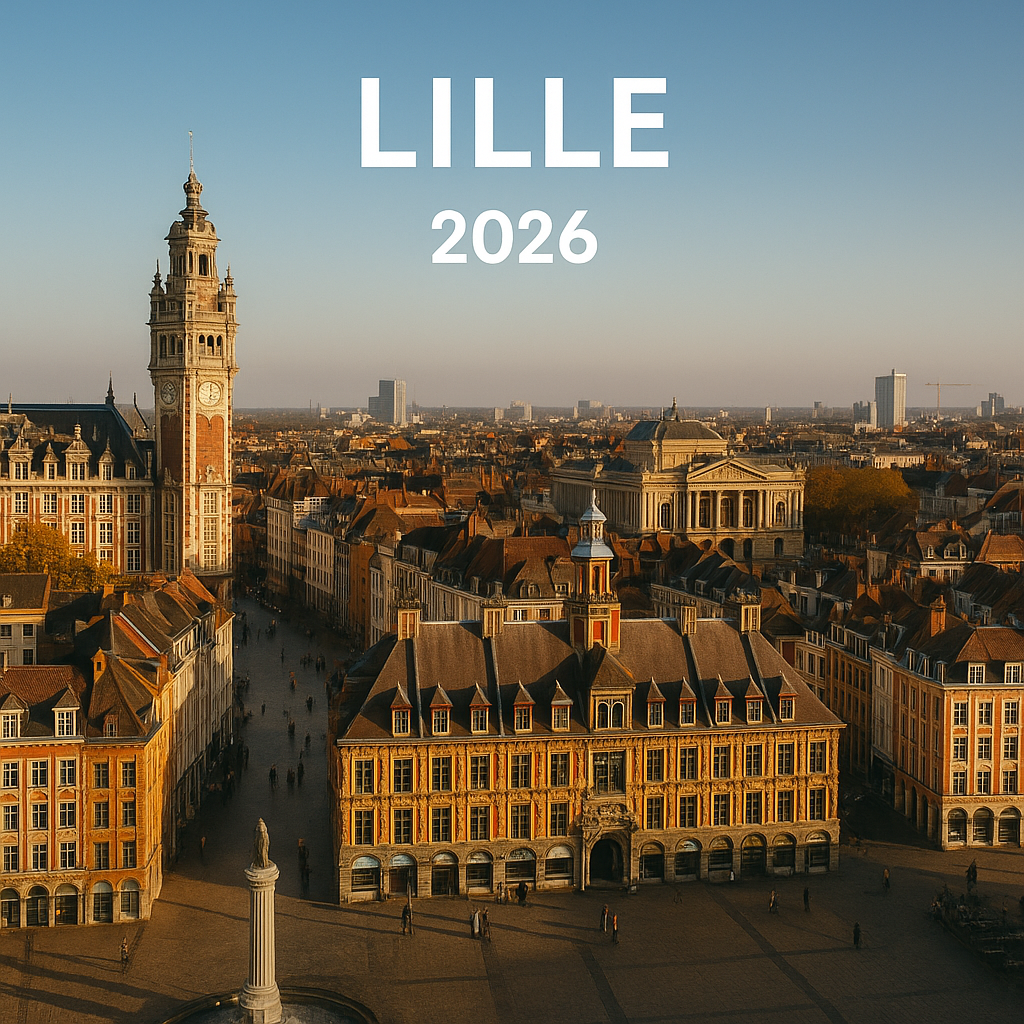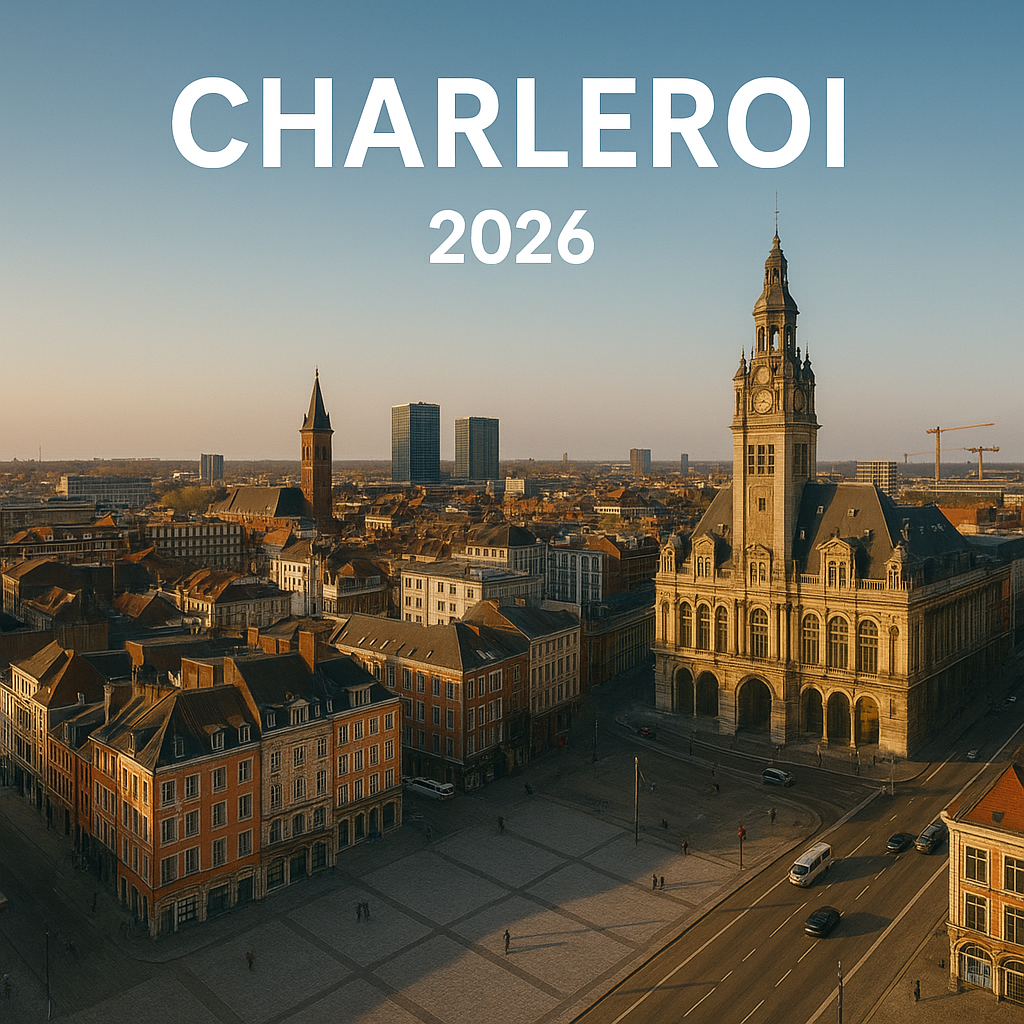Lyon, the majestic City of Lights, embodies both a thousand-year-old heritage and dazzling modernity. The historic capital of silk and corks, it is today an economic crossroads between Northern and Southern Europe. In 2025, its job market will be characterized by abundant but competitive supply. The Auvergne-Rhône-Alpes region is experiencing a 10% contraction in job offers compared to 2024, and the Lyon metropolitan area is showing a 13.2% drop. This moderation reflects a mature market where specialization, quality, and flexibility of candidates are paramount.
Sectors in demand and key professions
Industry and logistics remain the main pillars of Lyon's economy. Thanks to its strategic position at the confluence of the Rhône and Saône rivers, Lyon is a hub for the transport of goods between Northern Europe and the Mediterranean. Companies are seeking qualified order pickers, forklift drivers, delivery drivers, and logisticians. Salaries start at around €1,800 gross per month for a picker, but rise quickly with versatility (CACES, heavy goods vehicle license). Experienced logisticians and warehouse managers can earn up to €3,500 or more with bonuses.
Business support, which includes cleaning, security, consulting, and management services, is the leading sector in Auvergne-Rhône-Alpes. It recruits cleaners, caretakers, administrative assistants, and organizational optimization consultants. These professions offer stability and the possibility of advancement to supervisory positions.
The health and social care sector, despite a slight decline at the national level, remains buoyant. Caregivers, nursing assistants, and nurses are in high demand. A nurse earns an average of €2,300 gross, while a nursing assistant starts at around €2,000. Early childhood remains a high-demand field: childminder is the top job sought by candidates in Lyon. Although this profession requires approval from the Department, it ensures stable pay (between €3 and €5 per hour per child) and high demand.
How to position yourself in the Lyon market
Lyon stands out for its dense network of support structures. France Travail and local missions have offices in each arrondissement, offering personalized support. Associations such as L'Atelier de l'Emploi, Les Cités d'Or, and AFPA organize workshops on CV writing, mock interviews, and career guidance. For logistics jobs, CACES training is essential. The Lyon AFTRAL institute offers short modules for forklift and heavy goods vehicle drivers, while Promotrans and ENSP provide specialized training.
For personal services, the CAP Accompagnant Éducatif Petite Enfance (AEPE) or the approval of childminder are essential. Schools and CFA in Lyon offer these programs on a work-study basis. Consulting professions require a degree in management or human resources and sector expertise. Companies value fluency in English, or even Mandarin or German, due to the international dimension of the exchanges.
Student jobs and career changes
With three major universities (Lyon 1, Lyon 2, Lyon 3) and several higher education institutions (INSA, EM Lyon, Sciences Po Lyon), the city is teeming with students. They find opportunities in the cafes, bars, and restaurants of the Pentes de la Croix-Rousse and the Presqu'île. Hotels and inns recruit receptionists and waiters for weekends and tourist seasons. Delivery companies (bike couriers, VTC drivers) offer flexible contracts and a significant additional income.
There are numerous retraining programs. The Nouveaux Compagnons association offers short training courses (3 to 6 months) to transition from traditional manufacturing to digital technology (web development, data science). Simplon, the inclusive digital school, welcomes retraining profiles to train them in developer or integrator roles. The ESS (social and solidarity economy) sector also offers pathways through cooperatives and integration projects.
Checklist for a winning application :
CV : Highlight your logistics experience, certifications, and driver's license. A clear design and a coherent timeline are essential.
Cover letter : Mention your attachment to Lyon's traditions (bouchons, Festival of Lights) while showing your vision for the future (Industry 4.0, sustainable logistics). Lyon recruiters appreciate the local roots combined with global openness.
Flexible working hours : Warehouse or daycare positions sometimes require staggered or split shifts. Show that you're willing to work early mornings or late evenings.
Languages : English and Italian are useful in manufacturing and logistics, while German may be required in certain industrial sectors.
Certifications : CACES, ADR (transport of dangerous goods), or First Aid at Work (SST) training are key assets.
Networks : Get involved in groups like the "Tech In Lyon" and "Sustainable Logistics" Meetups, or neighborhood associations. Lyon's network is dense and responsive.
Lyon FAQ
Is there any support for career change?Yes, the Region offers training vouchers and mobility assistance. Pro-A and CPF schemes facilitate the financing of training programs.
What is the impact of the decline in offers? Despite the 13.2% drop, Lyon remains the second largest metropolis in terms of the number of offers nationally. Growth sectors are offsetting the decline in other areas, while competition is encouraging candidates to specialize.
Can you find a job without a diploma? Yes, particularly in logistics, cleaning, and certain handling positions. However, a short training course significantly increases employability and allows for greater responsibility.
What is the work environment like in Lyon? Lyon companies appreciate a participatory management style and value initiative. The balance between tradition and innovation is reflected in daily work: there is a focus on both quality and flexibility.
Are the administrative procedures complex? Guidance and mediation services, such as those at the Metropolitan Employment Integration Center, simplify the process. They help you prepare your training, certification, or job application file.
Conclusion
Lyon is a city where traditions and innovations intertwine. The relative decline in offers requires increased creativity, but the economic and cultural appeal of the metropolis guarantees a pool of opportunities for determined candidates. By combining training, networking, and adaptability, you will transform the City of Lights into the driving force of your career. Dare to meet people, invest in local networks, and prepare a solid application: Lyon will reward your boldness. And don't forget to take advantage of the rich heritage and gastronomy that make this city a unique place in which to work and live.
Sectors in demand and key professions
Industry and logistics remain the main pillars of Lyon's economy. Thanks to its strategic position at the confluence of the Rhône and Saône rivers, Lyon is a hub for the transport of goods between Northern Europe and the Mediterranean. Companies are seeking qualified order pickers, forklift drivers, delivery drivers, and logisticians. Salaries start at around €1,800 gross per month for a picker, but rise quickly with versatility (CACES, heavy goods vehicle license). Experienced logisticians and warehouse managers can earn up to €3,500 or more with bonuses.
Business support, which includes cleaning, security, consulting, and management services, is the leading sector in Auvergne-Rhône-Alpes. It recruits cleaners, caretakers, administrative assistants, and organizational optimization consultants. These professions offer stability and the possibility of advancement to supervisory positions.
The health and social care sector, despite a slight decline at the national level, remains buoyant. Caregivers, nursing assistants, and nurses are in high demand. A nurse earns an average of €2,300 gross, while a nursing assistant starts at around €2,000. Early childhood remains a high-demand field: childminder is the top job sought by candidates in Lyon. Although this profession requires approval from the Department, it ensures stable pay (between €3 and €5 per hour per child) and high demand.
How to position yourself in the Lyon market
Lyon stands out for its dense network of support structures. France Travail and local missions have offices in each arrondissement, offering personalized support. Associations such as L'Atelier de l'Emploi, Les Cités d'Or, and AFPA organize workshops on CV writing, mock interviews, and career guidance. For logistics jobs, CACES training is essential. The Lyon AFTRAL institute offers short modules for forklift and heavy goods vehicle drivers, while Promotrans and ENSP provide specialized training.
For personal services, the CAP Accompagnant Éducatif Petite Enfance (AEPE) or the approval of childminder are essential. Schools and CFA in Lyon offer these programs on a work-study basis. Consulting professions require a degree in management or human resources and sector expertise. Companies value fluency in English, or even Mandarin or German, due to the international dimension of the exchanges.
Student jobs and career changes
With three major universities (Lyon 1, Lyon 2, Lyon 3) and several higher education institutions (INSA, EM Lyon, Sciences Po Lyon), the city is teeming with students. They find opportunities in the cafes, bars, and restaurants of the Pentes de la Croix-Rousse and the Presqu'île. Hotels and inns recruit receptionists and waiters for weekends and tourist seasons. Delivery companies (bike couriers, VTC drivers) offer flexible contracts and a significant additional income.
There are numerous retraining programs. The Nouveaux Compagnons association offers short training courses (3 to 6 months) to transition from traditional manufacturing to digital technology (web development, data science). Simplon, the inclusive digital school, welcomes retraining profiles to train them in developer or integrator roles. The ESS (social and solidarity economy) sector also offers pathways through cooperatives and integration projects.
Checklist for a winning application :
CV : Highlight your logistics experience, certifications, and driver's license. A clear design and a coherent timeline are essential.
Cover letter : Mention your attachment to Lyon's traditions (bouchons, Festival of Lights) while showing your vision for the future (Industry 4.0, sustainable logistics). Lyon recruiters appreciate the local roots combined with global openness.
Flexible working hours : Warehouse or daycare positions sometimes require staggered or split shifts. Show that you're willing to work early mornings or late evenings.
Languages : English and Italian are useful in manufacturing and logistics, while German may be required in certain industrial sectors.
Certifications : CACES, ADR (transport of dangerous goods), or First Aid at Work (SST) training are key assets.
Networks : Get involved in groups like the "Tech In Lyon" and "Sustainable Logistics" Meetups, or neighborhood associations. Lyon's network is dense and responsive.
Lyon FAQ
Is there any support for career change?Yes, the Region offers training vouchers and mobility assistance. Pro-A and CPF schemes facilitate the financing of training programs.
What is the impact of the decline in offers? Despite the 13.2% drop, Lyon remains the second largest metropolis in terms of the number of offers nationally. Growth sectors are offsetting the decline in other areas, while competition is encouraging candidates to specialize.
Can you find a job without a diploma? Yes, particularly in logistics, cleaning, and certain handling positions. However, a short training course significantly increases employability and allows for greater responsibility.
What is the work environment like in Lyon? Lyon companies appreciate a participatory management style and value initiative. The balance between tradition and innovation is reflected in daily work: there is a focus on both quality and flexibility.
Are the administrative procedures complex? Guidance and mediation services, such as those at the Metropolitan Employment Integration Center, simplify the process. They help you prepare your training, certification, or job application file.
Conclusion
Lyon is a city where traditions and innovations intertwine. The relative decline in offers requires increased creativity, but the economic and cultural appeal of the metropolis guarantees a pool of opportunities for determined candidates. By combining training, networking, and adaptability, you will transform the City of Lights into the driving force of your career. Dare to meet people, invest in local networks, and prepare a solid application: Lyon will reward your boldness. And don't forget to take advantage of the rich heritage and gastronomy that make this city a unique place in which to work and live.






